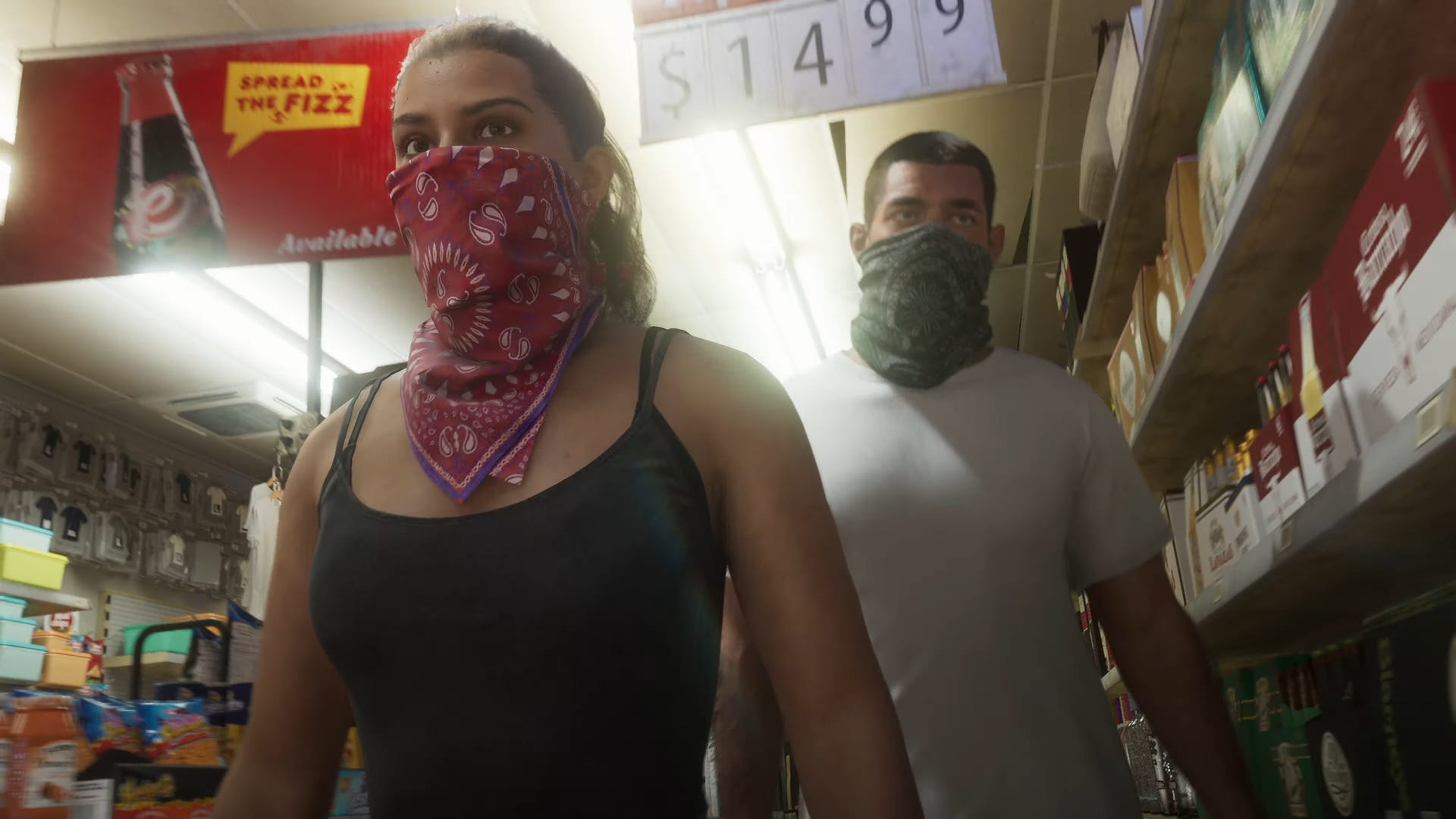techcrunch.com
Its been 25 years since China Miville stepped into the literary spotlight with his novel Perdido Street Station.Combining elements of science fiction, fantasy, and horror, the novel introduced readers to the fantastically complex city of New Crobuzon, filled with insect-headed khepri, cactus-shaped cactacae, and terrifying slake moths that feed on their victims dreams. It also sparked broader interest in what became known as the new weird.After Perdidos success (commemorated this year with a quickly-sold-out collectors edition from The Folio Society), Miville continued to meld genres in novels like The City and the City and Embassytown. But for nearly a decade, he stopped publishing fiction, only to reemerge last year with The New York Times bestseller The Book of Elsewhere, co-written with Keanu Reeves. (Yes, that Keanu Reeves.)Over the past two-plus decades, Miville has also been a compelling observer and critic of politics, of cities, of science fiction and fantasy. So while we started our conversation by discussing his breakthrough book, I also took the opportunity to ask about the relationship between science fiction and the real world, particularly what seems to be a growing tendency among tech billionaires to treat the science fiction they grew up reading as a blueprint for their future plans.To Miville, its a mistake to read science fiction as if its really about the future: Its always about now. Its always a reflection. Its a kind of fever dream, and its always about its own sociological context.He added that theres a societal and personal derangement at work when the rich and powerful are more interested in settling Mars than sorting out the world but ultimately, its not science fiction thats responsible.Lets not blame science fiction for this, he said. Its not science fiction thats causing this kind of sociopathy.This interview has been edited for length and clarity.First of all, congratulations on 25 years of Perdido Street Station. I was in high school when it first came out, and I have this very vivid memory of ditching school so I could finish the book, and then being very upset with how it ended.Thank you for telling me both that I upset you and that you read it.Its very strange. Like everyone whos my age, all I can really think is, I dont understand how Im this age. So the idea that Ive done anything that could be 25 years old, let alone this book, is giddying to me.Image Credits:The Folio Society/Douglas BellIn the afterword [to the new collectors edition], you talk about this being a young mans book. Was this also a book written in the spirit of, I dont like the way commercial fantasy looks right now, let me show you how its done?I mean, not as programmatically as that. That makes it sound like it was a more self-conscious intervention than it was, and it definitely wasnt that.What is true is that I always loved the fantastic, but I did not much like a lot of the commercially massive fantasies. And I was never much of a [J.R.R.] Tolkien fan. Most of the very successful fantasies that were obviously highly derived from Tolkien, they did nothing for me.Whereas that Dying Earth tradition, or that science fantasy tradition, or the tradition out of New Worlds [magazine], the post-[Michael] Moorcock tradition was always much more up my street combined, obviously, with people like [Mervyn] Peake and so on.So it was more a question for me of saying, I love fantasy, and this is the kind of fantasy I love. Im not saying I did something new, but for whatever reasons, theres tides in publishing and taste and so on.So yes, it was a repudiation of a certain tradition, but not a deliberate act of flag waving in that way, if that makes sense. I always felt myself highly located within a tradition, just a tradition that wasnt quite getting the attention that the [Tolkien] tradition was getting at the time.Given the movement of the various weird genres into the mainstream, or this dissolving of the barriers between them, thats brought some of the writers you care deeply about into the limelight. But have there been any downsides?Sure. This, to me, is what happens with all subcultures. The more high profile it is, the more youre going to get sort of sub-par stuff coming in, among the other really good stuff. Its going to become commodified. Not that it was ever not [commodified], but lets say, even more so. There will be a kind of cheapening. You end up with kind of Cthulhu plushies, all this stuff. And you can drive yourself mad with this.It happened with drum and bass. It happened with surrealism. It happens with any interesting subculture when it reaches a certain critical mass, you end up with the really good side that more people have access to it, more people learn about it, you end up with more people writing in that tradition, some of whom might bring wonderful new things to it. You also end up with the idea that theres often a banalization. It ends up throwing up its own tropes and clichs and becomes very domesticated.And this happened with science fiction. I mean, this is slightly before my time, but when there was one of the first waves of real theoretical interest in science fiction in the late 60s or 70s, there was a playful, tongue-in-cheek response from fandom that was like, Keep science fiction in the gutter where it belongs. And this, to me, is the endless dialectic between subculture and success. Youre never going to solve it.Image Credits:The Folio Society/Douglas BellI remember my high school self and college self, who was clutching Perdido Street Stationor Philip K. Dick or Ursula Le Guin and saying, You guys dont understand, this is so good. I had that evangelical fire. And when someone acts like that with science fiction now, I think, Guys, we won. You dont need to do that anymore.And I also feel something, because Im awful: Now people are reading those authors, and they dont deserve them. They dont get it. They didnt do the work.There is an obvious way in which that kind of nerd gatekeeping is just purely toxic, that is absolutely flatly true. I have also had quite interesting conversations with people my age and younger about whether there is anything genuinely culturally positive about when you had to work to be in a subculture. I dont mean work like, go mining. But you had to travel across town, you had to find out, you had to know who to ask. And I am tentatively of the mind that we have actually lost something by the absolute availability of everything if you can be bothered to click it.Im not saying there are no positives. I think there are enormous positives, but I think it would be facile to deny that there are also negatives. Im tempted by the arguments that the easiness of all cultural availability does lose a certain intensity, at least potentially, to a certain set of subcultures.I would say that very, very carefully, because Im trying out ideas. But maybe one could argue that thats the rational kernel of the appalling nerd police tendency.That leads to something else I wanted to ask about. Maybe this has always happened, but Ive noticed more tech industry folks like Elon Musk talking about science fiction and treating Isaac Asimov or Kim Stanley Robinson as sort of a blueprint for the future in ways that Im not crazy about. Is that something youve noticed too?First of all, one should just say, one can only feel deep sorrow for Kim Stanley Robinson that is something he doesnt deserve.The Silicon Valley ideology has always been a weird, queasy mix of libertarianism, hippieness, granola crunch tech utopianism hashtag #NotAllSilicon Valley, but really, actually, quite a fing lot of Silicon Valley.And all ideologies are always weird mixes of different things, often completely contradictory things. And then what is stressed at any moment is a response to political pressures and economic circumstances and so on.So its no secret, and its not new, that Silicon Valley has long been interested in science fiction. And to some extent, this is sociological. Theres a crossover of the literary nerd world and the computer world and so on.And I agree with you on several levels. One is, even though some science fiction writers do think in terms of their writing being either a utopian blueprint or a dystopian warning, I dont think thats what science fiction ever is. Its always about now. Its always a reflection. Its a kind of fever dream, and its always about its own sociological context. Its always an expression of the anxieties of the now. So theres a category error in treating it as if it is about the future.And then theres a whole series of other category errors whereby, because its a cultural form that is already always aestheticized, that can lead into a kind of fetishization very, very easily, which is why the slippage between a utopia and a dystopia is very easy to do. You end up with this structural disingenuousness.Notionally, to say something like Neuromancer and this is not me dissing Neuromancer, which I think is a wonderful book. But when people talk about it as this terrible warning, theres a part of you especially as a teenager, which to some degree or other, all science fiction people are youre like, Oh yeah, its a terrible warning that were all going to get to wear mirrorshades and be fantastically cool? So something that purports to be negative and a warning [can actually be] a deeply desirable thing.But most obviously: What elements of science fiction are these people going to be interested in? Theyre not going to be inspired by, for their products, the kind of visions of someone like Ursula Le Guin in Always Coming Home, which is precisely about moving out of the dead hand of the commodity. Thats of no use to them.Now, that does not preclude their nimbleness in maybe being able to find ways to commodify exactly that. But the fact that some of these people are serious that they are more interested in settling Mars than sorting out the world this is a very obvious point, but what kind of societal and personal derangement has happened that that actually makes sense?And I say this as someone who loves Mars-settling novels. I love this stuff. But the idea that you would, rather than say, This is a really interesting novel, this provides the following thoughts, maybe this inspires me to do certain kinds of work, but that you would say, Yes, thats what we should do, while around you, the world is spiraling into st? It would be terrifying if it wasnt so risible.Lets not blame science fiction for this. Its not science fiction thats causing this kind of sociopathy. Sorry to be hack, but its capitalism.Image Credits:The Folio Society/Douglas BellA big part of my response when I see something like that is to think, You guys are bad readers, and youre just fixated on the gadgets, as opposed to the more interesting or radical political or social notions. But on some level, I also think, Are they just subscribing to this ur-narrative that a lot of science fiction sells: Wont it be great when we go to Mars? Wont it be great to expand outward and colonize forever? And I guess Im wondering to what extent that should spur science fiction writers to try to tell different kinds of narratives.I mean, Im not the cop. People can tell any kind of story they want. I reserve the right to criticize them and critique them.I should say, by the way, I completely agree with you about bad reading, but I also just think that writers and critics, no matter how brilliant we may be, we dont own the books. They are always a collaboration. And all books, particularly the most interesting fiction, [are] always going to have contradictory threadsWhere I maybe get a little bit hesitant about the idea Im not saying youre saying this, but there can be an implicit literary causality model in this whereby, if we tell the right stories, then we will stop these people making these mistakes. And I just dont think art works that way.Artists are often very in thrall to a kind of artistic exceptionalism, where they like to justify their work as, on some level, a relatively direct political intervention. Or indeed, sometimes you hear people talk about [art] as activism, and I just dont think it is.My feeling is: I dont think there is a story we can tell which someone who because of the structural position theyre in, as well as maybe their psychology, but those two are not unrelated I dont think theres a story we can tell that they are not going to be able to say, Yes, what this tells me is, I should make loads of money and be fantastically powerful, whatever it takes. I dont think we can do that.None of this means that Im not interested in books that do tell interesting stories and untold stories and radical stories and so on. I absolutely am, and if people come to them and are radicalized by them, great. But that, I think, is fundamentally not something we can hope for.I would like us to be writing more interesting stories as a function of the fact that the world was getting better. I do not think that by us writing different stories, were going to make the world better. I just dont think thats the line of causality. There are simply too many layers of mediation from a book up into the social system.Getting back to your own writing, I know there have been whispers about a big new book coming from you. It sounds like its going to be out next year?Yes, it will be out. I dont know the exact date, but it will be out before the end of next year. Im just doing the last bits on it now.Is there anything you can say about it?I will just say that Ive been working on it for 20 years, and thats not an exaggeration. Ive been working on this book for considerably more than half of my adult life, and it is a very big deal for me, for it to be coming out. Im very excited for it.Anything else you want to conclude with?This is for TechCrunch, isnt it? I think social media is one of the worst things to happen to humanity for a long time, but Im hardly radical for saying that. I know everyones like, Oh ha ha, its awful, Im addicted. But I really do increasingly feel like, No, this is making us sick. This is destroying our brains.And I dont mean this in a kind of pious way, like, Im not on social media because Im better than everyone. The reason Im not on social media is because I know what I would be doing, and I thank God that I happened to be old enough that I had sorted out, broadly, who I was before it came along.












